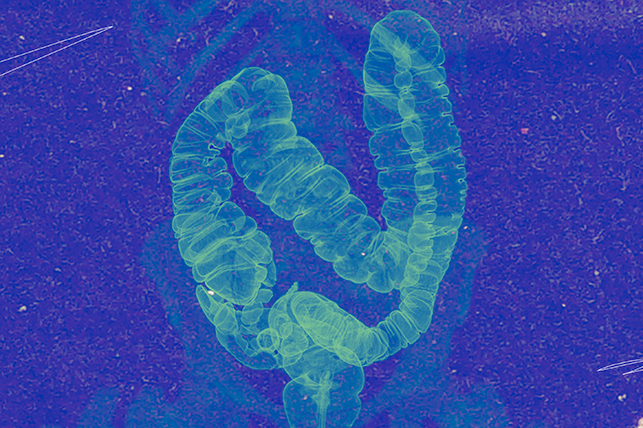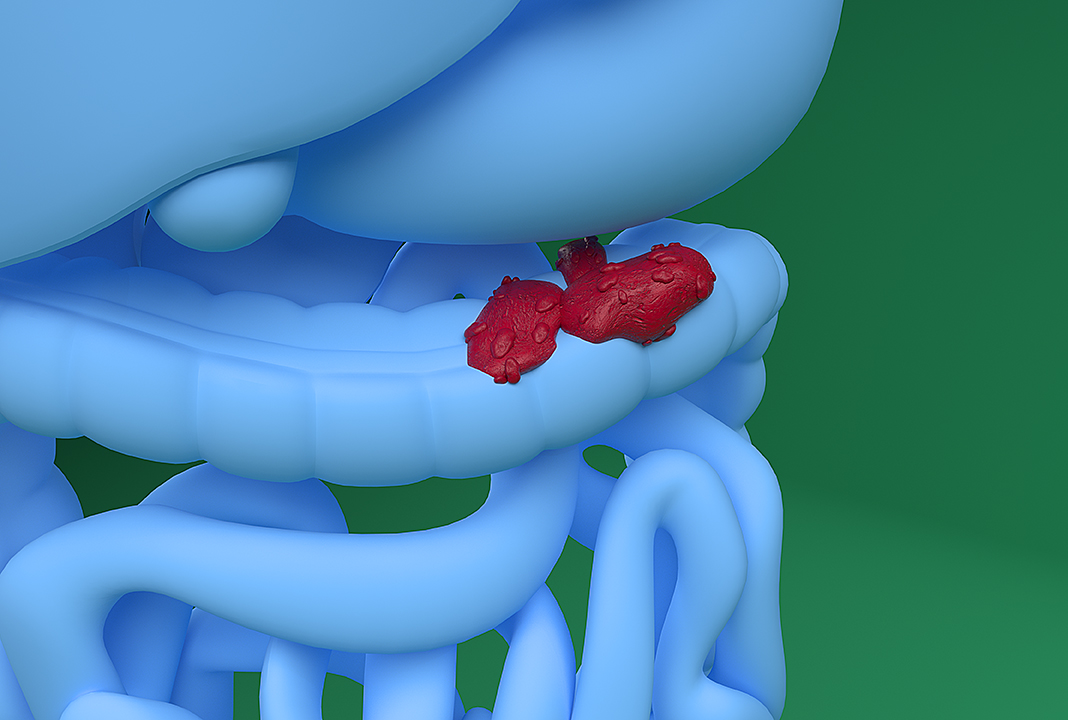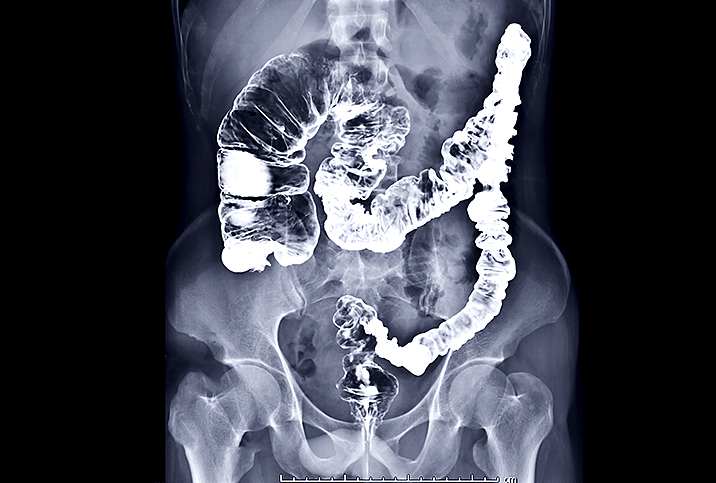Know the Risk Factors and Symptoms of Colorectal Cancer

Colorectal cancer is the name given to any cancer that develops in the colon (also known as the large intestine) or in the rectum. For both men and women, it is one of the deadliest and most common types of cancer.
What's particularly striking about colorectal cancer is how far the medical community has come in identifying many of the risk factors and how doctors and researchers have used that knowledge to reduce its occurrence.
In the United States, colorectal cancer is the fourth-most common type of cancer. It accounted for an estimated 151,000 cases in 2022, according to the National Cancer Institute's SEER data. More than 52,000 estimated deaths occurred during the year.
Those numbers have been declining steadily, though. Since the 1970s, the rate of new cases has plummeted by nearly half, and the five-year relative survival rate has climbed by nearly 20 percentage points.
That's due in large part to advances in screening methods and the public's enthusiasm in getting on board with early screening.
This success is also due to an increased understanding of the underlying causes of colorectal cancer and the ability of both the medical community and individuals to mitigate them.
We'll look at the major risk factors and what you can do in your own life to reduce your risk, as well as what some of the symptoms can be if the worst does happen.
Risk factors for colorectal cancer
Much like lung cancer and smoking, colorectal cancer is one of those cancer types that has a relatively clear line connecting it to an individual's medical history, as well as to certain behaviors.
That's not to say colorectal cancer or lung cancer or any other type of cancer occurs strictly due to any one factor. Cancer is a complicated, multi-causal phenomenon that we still don't fully understand. It develops over the course of many years, during which a person might live and work and breathe the air in many different environments, eat many different foods and live many different lifestyles.
It's impossible to tease out a single reason one person gets cancer and another doesn't.
However, there is robust evidence of links to certain risk factors; some we can control and some we can't. Those risk factors out of our control include the following:
- Age. People older than 50 are much more likely to get colorectal cancer, but it's trending younger.
- Family history. Colorectal cancer, like many other types, runs in the family.
- Genetics. African Americans and Ashkenazi Jews are at higher risk.
- Inflammatory bowel disease. A personal history of IBD puts you at a higher risk.
- Type 2 diabetes. People with type 2 diabetes are at higher risk.
"If you have a family history of colon cancer, then you should talk to your gastroenterologist about the number of people in your family who have had colon cancer, and they'll tell you when you should get screened and how much sooner," said Niket Sonpal, M.D., an internist and gastroenterologist in New York City. "Family history of colon cancer probably means you should talk to someone sooner than later because you might be due at age 40 or even sooner, depending on the relative's age."
Lifestyle factors
The everyday choices we make may affect our odds of developing colorectal cancer. According to the Centers for Disease Control and Prevention (CDC), some lifestyle risk factors include:
- A diet lacking in fruits and vegetables
- A low-fiber, high-fat diet
- A diet high in processed meats
- Lack of physical activity
- Obesity and being overweight
- Tobacco use
- Heavy use of alcohol
- Meats prepared at high temperatures, like fried or well-done red meat
"Low fiber plays a role in the development of colon cancer," Sonpal said. "Look at fiber kind of like weightlifting for the colon: The more fiber you eat, the healthier your bowel movements are. Red meat does play a role, but the exact role and the amount of red meat and so forth is difficult to say. There are inconsistent data."
It is known, Sonpal continued, that red meat—barbecuing it, pan-frying it—has been attributed as a risk. Obesity, using tobacco products and cigarette smoking are risk factors for all types of polyps and colorectal cancer.
Symptoms of colorectal cancer
If you are of a certain age, you're at least likely aware of what a colonoscopy is. The campaign to urge the public to get colonoscopy screenings when it's age-appropriate has been largely successful, much like campaigns that urge men to perform testicular self-exams.
The reason the healthcare community has pushed colonoscopies so hard is that someone could have early-stage colorectal cancer and never even know it. Symptoms don't usually appear unless and until it's advanced—and advanced colon or rectal cancer can be very bad news.
"Most people with early stages of colorectal cancer don't know they have it," said Shahrad Hakimian, M.D., a gastroenterologist with UCLA Health in Los Angeles. "That's one of the difficult things with having this, and one of the reasons why we need this screening test. If you had obvious symptoms, that would normally lead to a diagnostic to figure out why you have the symptoms. But not having symptoms doesn't mean you don't have colon cancer."
If symptoms do appear, they may vary depending on the location—colon or rectum—and the size of the cancer, according to Mayo Clinic. Symptoms can include the following:
- Changes in bowel habits that persist over time, including diarrhea, constipation, a change in the consistency of the stool, narrower stool or more frequent bowel movements
- Abdominal pain or discomfort
- Feeling like your bowel never empties fully
- Blood in the stool or rectal bleeding
- Weakness or fatigue
- Unexplained weight loss
"Weight loss is the one I worry the most about," Hakimian said. "Unintentional weight loss is always a concern for an array of medical issues, not just colon cancer. But in the right individual, that's definitely a red flag."
There's a great deal of overlap in the symptoms of rectal cancer and colon cancer. One potential difference, however, is bleeding from the rectum.
"If the colorectal cancer is in the rectum, right at the very end of the colon, that can cause visible bleeding," Hakimian said. "But there are many, many causes of rectal bleeding, the most common being hemorrhoids. Seeing visible blood, if it's never been evaluated, does require evaluation. But on its own, it doesn't necessarily mean someone has cancer."
Sometimes symptoms may include bowel obstruction, vomiting and abdominal distention, Hakimian added, but those are reserved for very advanced cancer with large masses.
Take advantage of screening and lifestyle changes
It's undeniable that great strides have been made in terms of early colorectal cancer detection and in understanding some of the lifestyle-related risk factors we have in our control.
However, even knowing what we know, if you as an individual don't assert some agency—talking to your healthcare provider about when you should get screened and eliminating lifestyle risks—there's only so much the medical community can do for you.
You can't be physically examined or receive a colonoscopy virtually, but if you are in search of a doctor—you've moved, your longtime physician retired—Giddy telehealth takes the difficulty out of the search. The easy-to-use online service provides access to hundreds of healthcare professionals who have expertise across the full scope of medical care. Many offer same-day video visits that can lead to in-office care when needed.


















